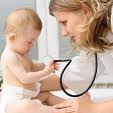نورس
*********




المشاركات : 30951
العمـر : 94
تعاليق : مؤسس منتدى النورس
المزاج : 
الدولة : 
المهنة : 
الهواية : 
التسجيل : 09/10/2008
النقاط : 39243
التقييم : 1559

 
 |  موضوع: Down Syndrome موضوع: Down Syndrome  السبت فبراير 20, 2010 4:01 am السبت فبراير 20, 2010 4:01 am | |
| What is Down Syndrome?Down syndrome (DS), also called Trisomy 21, is a condition in which extra genetic material causes delays in the way a child develops, both mentally and physically. It affects about 1 in every 800 babies.The physical features and medical problems associated with Down syndrome can vary widely from child to child. While some kids with DS need a lot of medical attention, others lead healthy lives.Though Down syndrome can't be prevented, it can be detected before a child is born. The health problems that can go along with DS can be treated, and there are many resources within communities to help kids and their families who are living with the condition.What Causes It?Normally, at the time of conception a baby inherits genetic information from its parents in the form of 46 chromosomes: 23 from the mother and 23 from the father. In most cases of Down syndrome, a child gets an extra chromosome 21 — for a total of 47 chromosomes instead of 46. It's this extra genetic material that causes the physical features and developmental delays associated with DS.
Although no one knows for sure why DS occurs and there's no way to prevent the chromosomal error that causes it, scientists do know that women age 35 and older have a significantly higher risk of having a child with the condition. At age 30, for example, a woman has about a 1 in 900 chance of conceiving a child with DS. Those odds increase to about 1 in 350 by age 35. By 40 the risk rises to about 1 in 100.
How Down Syndrome Affects KidsKids with Down syndrome tend to share certain physical features such as a flat facial profile, an upward slant to the eyes, small ears, and a protruding tongue.Low muscle tone (called hypotonia) is also characteristic of children with DS, and babies in particular may seem especially "floppy." Though this can and often does improve over time, most children with DS typically reach developmental milestones — like sitting up, crawling, and walking — later than other kids.At birth, kids with DS are usually of average size, but they tend to grow at a slower rate and remain smaller than their peers. For infants, low muscle tone may contribute to sucking and feeding problems, as well as constipation and other digestive issues. Toddlers and older kids may have delays in speech and self-care skills like feeding, dressing, and toilet teaching.Down syndrome affects kids' ability to learn in different ways, but most have mild to moderate intellectual impairment. Kids with DS can and do learn, and are capable of developing skills throughout their lives. They simply reach goals at a different pace — which is why it's important not to compare a child with DS against typically developing siblings or even other children with the condition.Kids with DS have a wide range of abilities, and there's no way to tell at birth what they will be capable of as they grow up.Medical Problems Associated With DSWhile some kids with DS have no significant health problems, others may experience a host of medical issues that require extra care. For example, almost half of all children born with DS will have a congenital heart defect.Kids with Down syndrome are also at an increased risk of developing pulmonary hypertension, a serious condition that can lead to irreversible damage to the lungs. All infants with Down syndrome should be evaluated by a pediatric cardiologist.Approximately half of all kids with DS also have problems with hearing and vision. Hearing loss can be related to fluid buildup in the inner ear or to structural problems of the ear itself. Vision problems commonly include amblyopia (lazy eye), near- or farsightedness, and an increased risk of cataracts. Regular evaluations by an audiologist and an ophthalmologist are necessary to detect and correct any problems before they affect language and learning skills.
ther medical conditions that may occur more frequently in kids with DS include thyroid problems, intestinal abnormalities, seizure disorders, respiratory problems, obesity, an increased susceptibility to infection, and a higher risk of childhood leukemia. Upper neck abnormalities are sometimes found and should be evaluated by a physician (these can be detected by cervical spine X-rays). Fortunately, many of these conditions are treatable.Prenatal Screening and DiagnosisTwo types of prenatal tests are used to detect Down syndrome in a fetus: screening tests and diagnostic tests. Screening tests estimate the risk that a fetus has DS; diagnostic tests can tell whether the fetus actually has the condition.Screening tests are cost-effective and easy to perform. But because they can't give a definitive answer as to whether a baby has DS, these tests are used to help parents decide whether to have more diagnostic tests.Diagnostic tests are about 99% accurate in detecting Down syndrome and other chromosomal abnormalities. However, because they're performed inside the uterus, they are associated with a risk of miscarriage and other complications.For this reason, invasive diagnostic testing previously was generally recommended only for women age 35 or older, those with a family history of genetic defects, or those who've had an abnormal result on a screening test.However, the American College of Obstetrics and Gynecology (ACOG) now recommends that all pregnant women be offered screening with the option for invasive diagnostic testing for Down syndrome, regardless of age.If you're unsure about which test, if any, is right for you, your doctor or a genetic counselor can help you sort through the pros and cons of each.
Screening tests include:Nuchal translucency testing. This test, performed between 11 and 14 weeks of pregnancy, uses ultrasound to measure the clear space in the folds of tissue behind a developing baby's neck. (Babies with DS and other chromosomal abnormalities tend to accumulate fluid there, making the space appear larger.) This measurement, taken together with the mother's age and the baby's gestational age, can be used to calculate the odds that the baby has DS. Nuchal translucency testing is usually performed along with a maternal blood test.The triple screen or quadruple screen (also called the multiple marker test). These tests measure the quantities of normal substances in the mother's blood. As the names imply, triple screen tests for three markers and quadruple screen includes one additional marker and is more accurate. These tests are typically offered between 15 and 18 weeks of pregnancy.Integrated screen. This uses results from first trimester screening tests (with or without nuchal translucency) and blood tests with second trimester quad screen to come up with the most accurate screening results.A genetic ultrasound. A detailed ultrasound is often performed at 18 to 20 weeks in conjunction with the blood tests, and it checks the fetus for some of the physical traits abnormalities associated with Down syndrome.Diagnostic tests include:Chorionic villus sampling (CVS). CVS involves taking a tiny sample of the placenta, either through the cervix or through a needle inserted in the abdomen. The advantage of this test is that it can be performed during the first trimester, between 8 and 12 weeks. The disadvantage is that it carries a slightly greater risk of miscarriage as compared with amniocentesis and has other complications.Amniocentesis. This test, performed between 15 and 20 weeks of pregnancy, involves the removal of a small amount of amniotic fluid through a needle inserted in the abdomen. The cells can then be analyzed for the presence of chromosomal abnormalities. Amniocentesis carries a small risk of complications, such as preterm labor and miscarriage.Percutaneous umbilical blood sampling (PUBS). Usually performed after 20 weeks, this test uses a needle to retrieve a small sample of blood from the umbilical cord. It carries risks similar to those associated with amniocentesis.After a baby is born, if the doctor suspects DS based on the infant's physical characteristics, a karyotype — a blood or tissue sample stained to show chromosomes grouped by size, number, and shape — can be performed to verify the diagnosis.
Getting HelpIf you're the parent of a child diagnosed with Down syndrome, you may at first feel overwhelmed by feelings of loss, guilt, and fear. Talking with other parents of kids with DS may help you deal with the initial shock and grief and find ways to look toward the future. Many parents find that learning as much as they can about DS helps alleviate some of their fears.Experts recommend enrolling kids with Down syndrome in early-intervention services as soon as possible. Physical, occupational, and speech therapists and early-childhood educators can work with your child to encourage and accelerate development.Many states provide free early-intervention services to kids with disabilities from birth to age 3, so check with your doctor or a social worker to learn what resources are available in your area.Once your child is 3 years old, he or she is guaranteed educational services under the Individuals with Disabilities Education Act (IDEA). Under IDEA, local school districts must provide "a free appropriate education in the least restrictive environment" and an individualized education plan (IEP) for each child.Where to send your child to school can be a difficult decision. Some kids with Down syndrome have needs that are best met in a specialized program, while many others do well attending neighborhood schools alongside peers who don't have DS. Studies have shown that this type of situation, known as inclusion, is beneficial for both the child with DS as well as the other kids.Your school district's child study team can work with you to determine what's best for your child, but remember, any decisions can and should involve your input, as you are your child's best advocate.Today, many kids with Down syndrome go to school and enjoy many of the same activities as other kids their age. A few go on to college. Many transition to semi-independent living. Still others continue to live at home but are able to hold jobs, thus finding their own success in the community
| |
|
عاشقة الزهور
*****




المشاركات : 75737
العمـر : 41
المزاج : 
الدولة : 
المهنة : 
الهواية : 
التسجيل : 09/03/2009
النقاط : 101796
التقييم : 846
 |  موضوع: رد: Down Syndrome موضوع: رد: Down Syndrome  السبت فبراير 20, 2010 6:50 am السبت فبراير 20, 2010 6:50 am | |
| يعطيك الف عافية نوس
بارك الله فيك
| |
|
الجوهرة المصونة
*****




المشاركات : 17164
العمـر : 36
تعاليق : مشرفة الطب والصحة
المزاج : 
الدولة : 
المهنة : 
الهواية : 
التسجيل : 10/10/2008
النقاط : 18248
التقييم : 501

 
توفيقك يارب

 |  موضوع: رد: Down Syndrome موضوع: رد: Down Syndrome  الأحد فبراير 21, 2010 2:12 pm الأحد فبراير 21, 2010 2:12 pm | |
| | |
|





